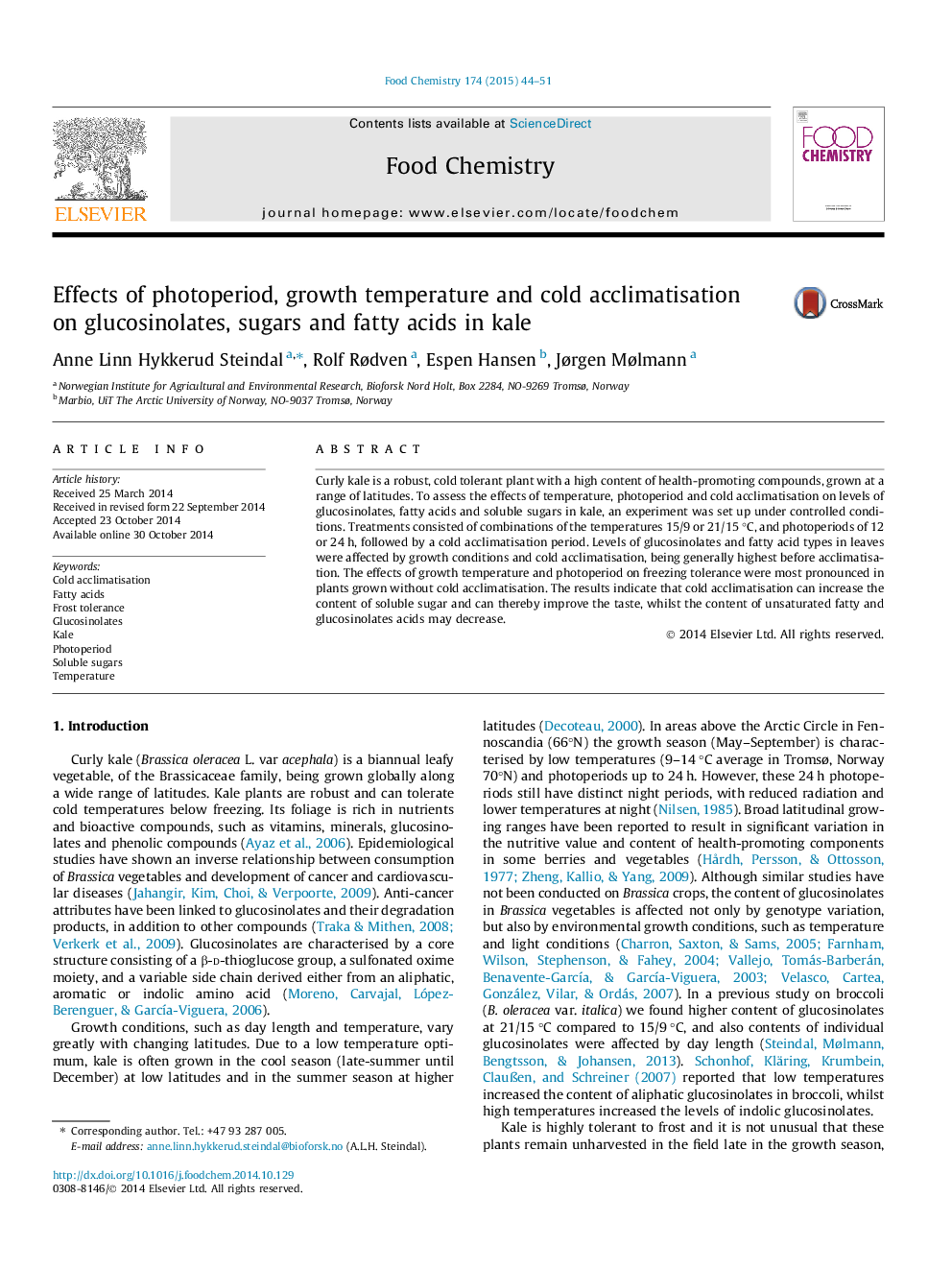| Article ID | Journal | Published Year | Pages | File Type |
|---|---|---|---|---|
| 7593330 | Food Chemistry | 2015 | 8 Pages |
Abstract
Curly kale is a robust, cold tolerant plant with a high content of health-promoting compounds, grown at a range of latitudes. To assess the effects of temperature, photoperiod and cold acclimatisation on levels of glucosinolates, fatty acids and soluble sugars in kale, an experiment was set up under controlled conditions. Treatments consisted of combinations of the temperatures 15/9 or 21/15 °C, and photoperiods of 12 or 24 h, followed by a cold acclimatisation period. Levels of glucosinolates and fatty acid types in leaves were affected by growth conditions and cold acclimatisation, being generally highest before acclimatisation. The effects of growth temperature and photoperiod on freezing tolerance were most pronounced in plants grown without cold acclimatisation. The results indicate that cold acclimatisation can increase the content of soluble sugar and can thereby improve the taste, whilst the content of unsaturated fatty and glucosinolates acids may decrease.
Related Topics
Physical Sciences and Engineering
Chemistry
Analytical Chemistry
Authors
Anne Linn Hykkerud Steindal, Rolf Rødven, Espen Hansen, Jørgen Mølmann,
